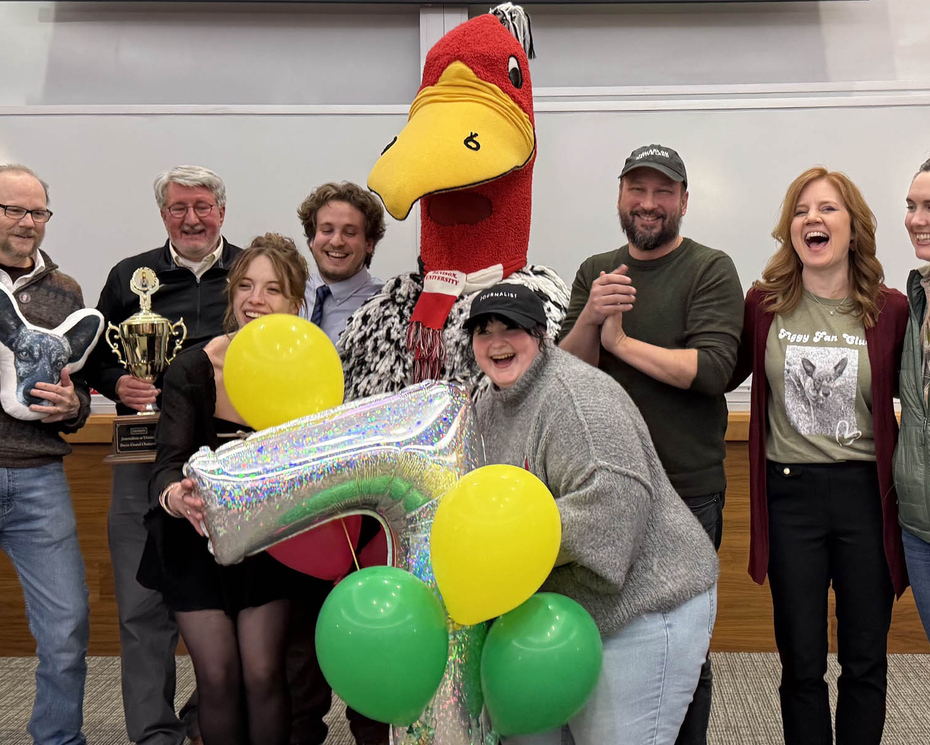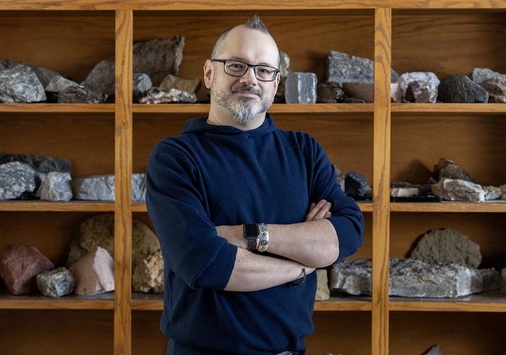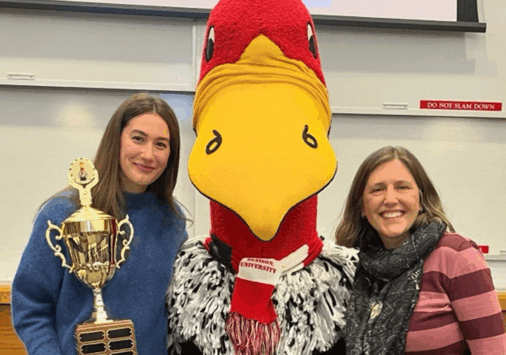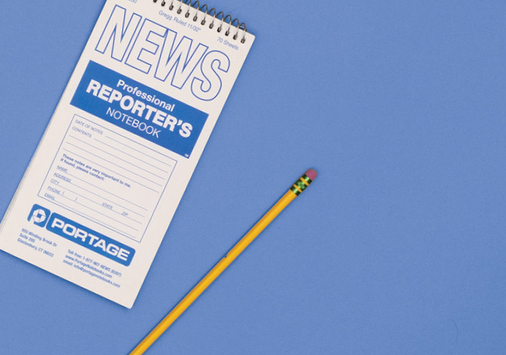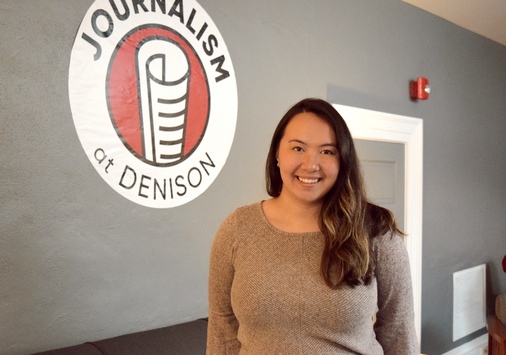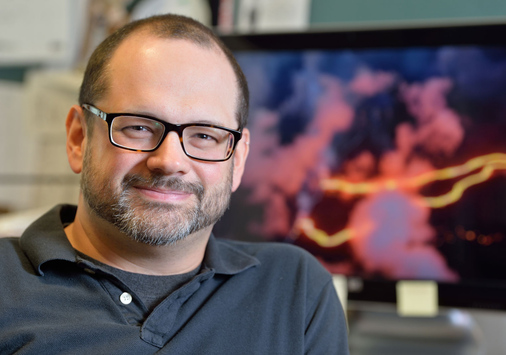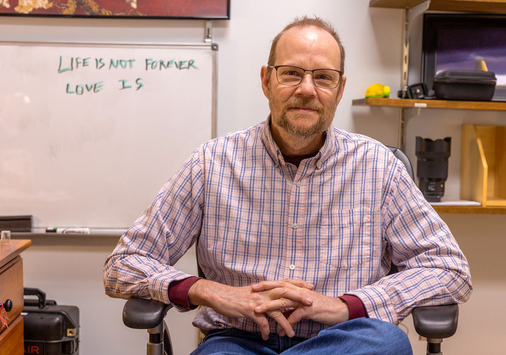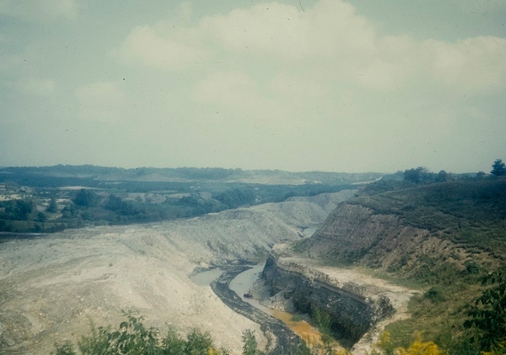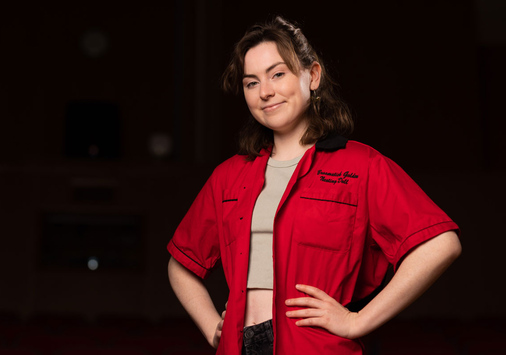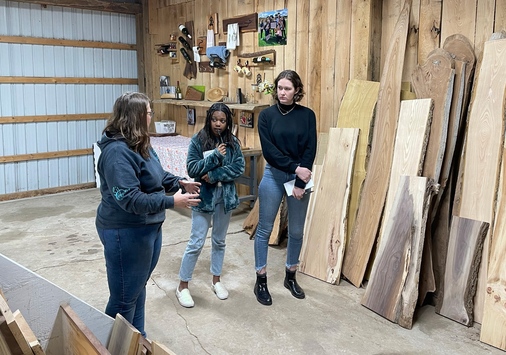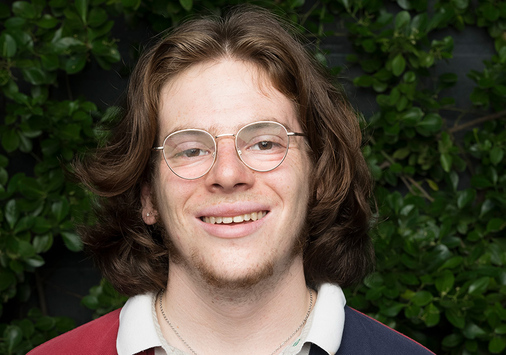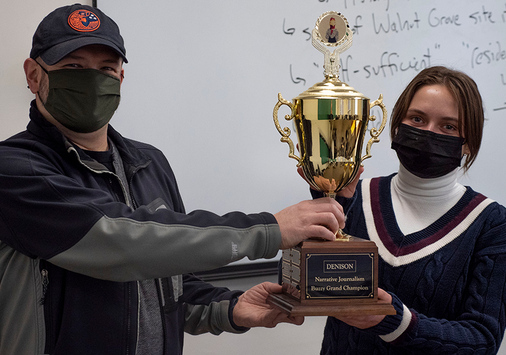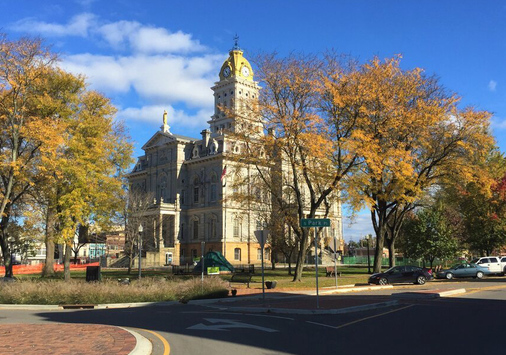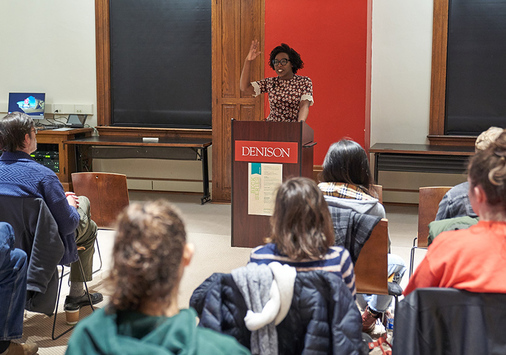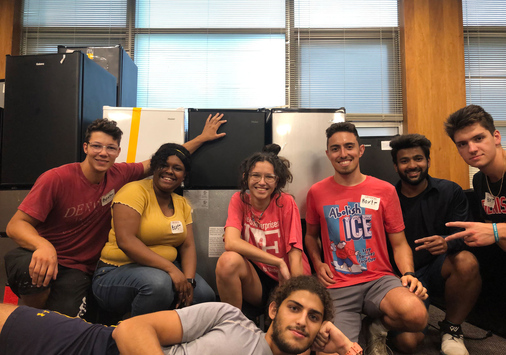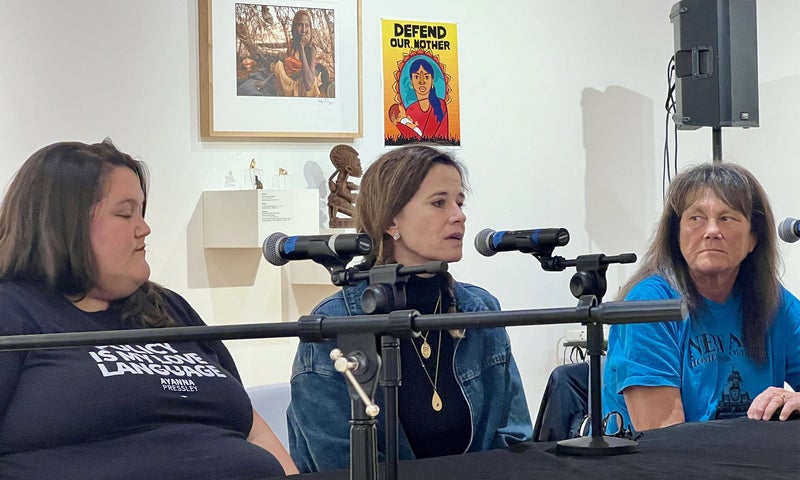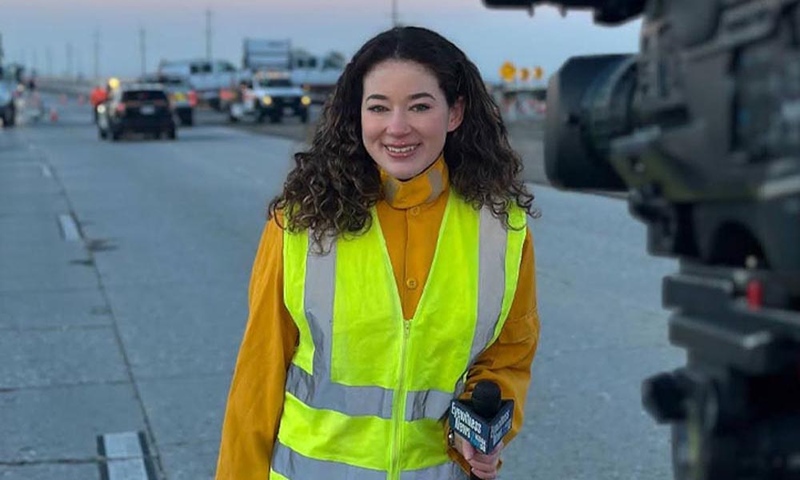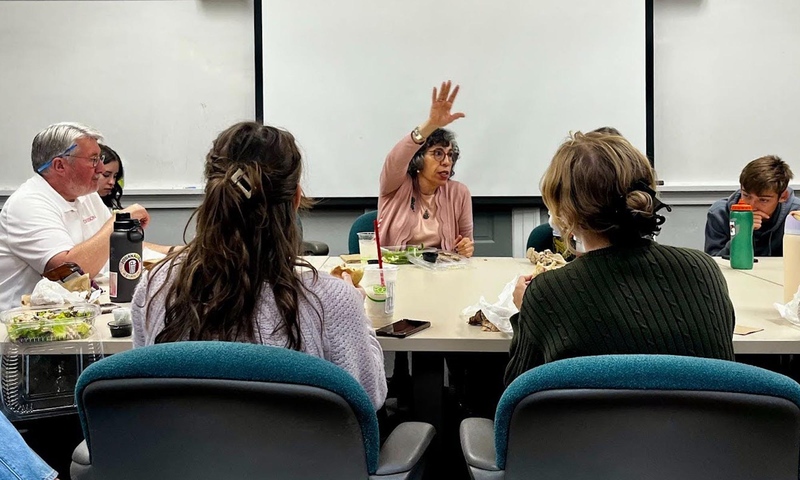Courses
2025 - 2026
For this academic year's course catalog, please visit our Academic Catalog site. For courses currently offered, please refer to the Schedule of Classes.
This course focuses on the fundamentals of news reporting and writing. Students will explore storytelling and narrative, lead writing, point of view, information gathering, interviewing, ethics, and more. The class aims to help students develop overall research, writing, and thinking skills; questioning, listening, and interviewing skills; and a more sophisticated understanding of the practice and ethics of contemporary journalism.
This course helps students new to journalism to learn the principles of investigative reporting and storytelling in an applied way by practicing them on a unique and important story to our community, and to the world. Each semester the class will focus on a unique issue and work collectively to report and write stories about that issue.
Crosslisting: SES 150.
A general category used only in the evaluation of transfer credit.
Surveys literary nonfiction writing in the 20th and 21st centuries and introduces students to the many genres of nonfiction writing, to the creative possibilities of contemporary journalism, and to the ethics of writing about other people. Students read extensively and write in the genres of personal essay, immersion, news, and narrative journalism.
Crosslisting: ENGL 221.
This course explores nonfiction storytelling across multiple platforms. Students will learn how to edit audio and video stories using relevant and up-to-date programs. Most importantly, they will learn which is the most effective vehicle for the story they are telling.
Crosslisting: ENGL 386 and DH 230.
These are special topics courses at the 200 level, distinguished from the 300 level special topics courses because they are survey courses as opposed to specific craft, genre, or issue.
It is one thing to do science. It is another to write about science in a way that is compelling, understandable and relatable to the public. With our current political and cultural climate, this means science writing is in a vital role in educating people on how science works, how it impacts our daily lives, and how we can defend against misinformation. You don’t need to be a scientist to learn how to write about science, you just need to be interested in how we can write effectively about scientific ideas, research, and people. This course will develop your skills in writing about science so that, by the end of the semester, you will have created new science media articles, podcasts, and more that delve into science being done on campus and around the world. We will read examples of excellent science writing, converse with people who are active writers in science media and workshop our writing to hone our stories.
In this course we will do research and reporting, and we will advance our skills in writing and self-editing. The larger goal of this course is to understand how our writing affects humanity and our humanity can affect our reporting and writing. We will learn about media law and the difference between ethics and the law. We will work to develop skills that allow reporters to develop a moral compass based on high standards of ethics and empathy to identify, report and write stories that will have an impact in the community.
This class is an introduction to the study of documentary filmmaking. We will cover this subject as a topic of film analysis (attending to the formal characteristics of film), history (examining landmark films and film movements in the development of documentary), and theory (exploring larger, more philosophical questions raised by non-fiction films). Students will work in a variety of formats (short and long writing assignments, in-class exercises, and oral presentation), as we address the following questions. Who are the most vital documentary filmmakers both historically and of our time? What defines a documentary as opposed to other film genres or modes? What are the subjects that are particularly suited to exploration through documentary filmmaking? How variously do documentarians define truth and by what ethical contracts do they consider themselves bound? Feature-length films are the central focus of the class, but we will also work with television series, radio programs, and non-fiction writing.
This course addresses a critical goal that is often neglected in the sciences – the translation of scientific results for the public. Even if the goal of science is to make progress in the public interest, a key way that the public knows about scientific results as well as maintains support for scientific projects is through communication. Thus, the primary goal is to develop skills of written communication with scientific content that is appropriate for general public consumption. The course covers a concern for narrative, translating scientific jargon without loss of meaning, providing detail to convey appropriate levels of certainty, addressing audience needs, and packing considerable material into short passages, while respecting the ethics of reporting to the public. Integration with the onetwentyseven.blog is emphasized.
Crosslisting: DPR 250.
A general category used only in the evaluation of transfer credit.
Experiential Reporting gives students a better understanding of the ethics of reporting in communities other than their own. Each class will focus on a specific geographic location and include significant on-the-ground reporting trips. Students will develop ethical and effective ways of finding stories within communities, conducting interviews, connecting and building relationships with interviewees, and networking with community experts.
Prerequisite(s): At least two courses from JOUR 100, 200, and JOUR 201, or permission of the instructor.
This course will help students learn how to make nonfiction character-based audio stories, as well as making them comfortable with the technical elements of sound recording and editing. Students will also learn the ethics of telling stories about and with people.
Prerequisite(s): JOUR 201 or permission of instructor.
In this course we will learn how to make nonfiction character-based short films, as well as become comfortable with the technical elements of image and sound. We will also explore the ethics of telling stories about and with people.
Prerequisite(s): JOUR 201 or permission of instructor.
These are special topics courses at the 300 level, distinguished from the 200 level special topics courses because they are focused on a specific craft, genre, or issue, and are not survey courses.
In this course you will learn how to write your own editorials and columns. We will examine this style of essay writing and the ethical expectations and obligations that it carries through close readings of contemporary practitioners. We will have spirited discussions in the classroom. This is all part of the process -- and one that will test your abilities to present reasoned arguments. This is a good thing because the goal is to help you become better and more confidant opinion writers.
Place is fundamental to storytelling, and therefore to good reporting. Understanding where a story takes place means knowing which descriptive details to put in and leave out. Place is reflected in and shapes the people we write about. Good reporters need to understand that someone from a small rural village is going to have a different worldview that someone from a city, and they need to understand why, and how it affects their motivations and shapes the institutions that govern their lives. Understanding and respecting the places where we report from helps us produce authentic and compelling stories with depth and insight. This course will explore "places" that are easily accessible to students and faculty--Rural America, Appalachia, the City, the Suburbs, Rust Belt America--for example.
Crosslisting: SES 360.
A student in good standing may work intensively in areas of special interest under the Directed Study plan. A Directed Study is appropriate when, under the guidance of a faculty member, a student wants to explore a subject more fully than is possible in a regular course or to study a subject not covered in the regular curriculum. A Directed Study should not normally duplicate a course that is regularly offered. Directed Studies are normally taken for 3 or 4 credits. A one-semester Directed Study is limited to a maximum of 4 credit hours. Note: Directed Studies may not be used to fulfill General Education requirements.
A student in good standing may work intensively in areas of special interest under the Directed Study plan. A Directed Study is appropriate when, under the guidance of a faculty member, a student wants to explore a subject more fully than is possible in a regular course or to study a subject not covered in the regular curriculum. A Directed Study should not normally duplicate a course that is regularly offered. Directed Studies are normally taken for 3 or 4 credits. A one-semester Directed Study is limited to a maximum of 4 credit hours. Note: Directed Studies may not be used to fulfill General Education requirements.
Independent Study engages a student in the pursuit of clearly defined goals. In this effort, a student may employ skills and information developed in previous course experiences or may develop some mastery of new knowledge or skills. A proposal for an Independent Study project must be approved in advance by the faculty member who agrees to serve as the project advisor. Note: Independent Studies may not be used to fulfill General Education requirements.
Independent Study engages a student in the pursuit of clearly defined goals. In this effort, a student may employ skills and information developed in previous course experiences or may develop some mastery of new knowledge or skills. A proposal for an Independent Study project must be approved in advance by the faculty member who agrees to serve as the project advisor. Note: Independent Studies may not be used to fulfill General Education requirements.
This class is for students who plan to enter public service or helping professions (such as journalism, education, healthcare, or counseling). This experiential learning course aims to develop narrative competence – the ability to acknowledge, absorb, interpret, and act on the stories and plights of others. Through reading, writing, and regularly volunteering with local organizations, we will work together to improve our abilities to receive and tell stories. We’ll acquire knowledge, tools, and habits of mind that we can use in current and future efforts to help others. We’ll consider how to avoid harming others in the name of helping. And we’ll intentionally cultivate compassion, presence, and self-awareness.
Crosslisting: EDUC 283.
A general category used only in the evaluation of transfer credit.
Students work as reporters and/or editors for The Reporting Project (a platform for community-focused media) under the supervision of a faculty advisor. Students participate in editorial meetings at least once a week, pitching, reporting, and producing written and/or multimedia stories. The experience of working in an organized and collaborative storytelling project is invaluable. Course will include written reflection on the experience throughout the semester. Requires permission of the instructor.
Prerequisite(s): Permission of instructor.
Students may enroll in Senior Research in their final year at Denison. Normally, Senior Research requires a major thesis, report, or project in the student's field of concentration and carries eight semester-hours of credit for the year. Typically, a final grade for a year-long Senior Research will not be assigned until the completion of the year-long Senior Research at the end of the second semester. Each semester of Senior Research is limited to a maximum of 4 credit hours. Note: Senior Research may not be used to fulfill General Education requirements.
Students may enroll in Senior Research in their final year at Denison. Normally, Senior Research requires a major thesis, report, or project in the student's field of concentration and carries eight semester-hours of credit for the year. Typically, a final grade for a year-long Senior Research will not be assigned until the completion of the year-long Senior Research at the end of the second semester. Each semester of Senior Research is limited to a maximum of 4 credit hours. Note: Senior Research may not be used to fulfill General Education requirements.
Journalism majors must complete at least one semester of senior research. This semester you'll write a deeply reported and substantial work of narrative journalism or a portfolio of shorter works (in any medium). This is an opportunity to work on something that you care about deeply within a supportive environment. We meet weekly as a group and one-on-one. Class will be a mix of workshops, discussions, and guest speakers.
Prerequisite(s): Must be a Senior Journalism major.
